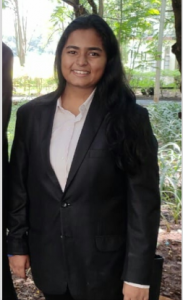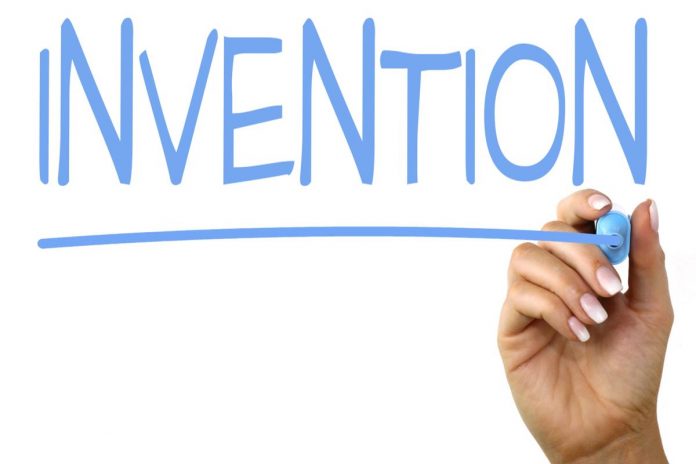This article is written by Geethika Satti, pursuing a Diploma in Intellectual Property, Media and Entertainment Laws from LawSikho.com. Here she discusses “Anticipation of Invention: What constitutes Anticipation in India?”.

Introduction: Novelty and Patent Laws
Novelty is the statutory requirement that an invention is new. It refers to the newness of the invention or the discovery of an unknown invention, which gives the inventor a competitive advantage over the other players in the market. For instance, a drug is patented by an XYZ firm, the patent holder is the only person who is entitled to make the product, use the process or exploit the invention. Only XYZ can market and sell the drug, and only they are entitled to profit from the same.
If there is no novelty in an invention, there is no consideration moving from the patentee and no benefit is given to the public, because it adds nothing to the sum of human knowledge already existing in the concerned field. As a result, the public is not benefited, if not, is it a detriment. Because, if something which is in the public domain and is freely accessible to everyone is suddenly patented, the rights of the public to use the invention are curtailed and the rights of the original inventors are also taken away.
In the Indian Patents Act, 1970, Section 2(1)(l) explains the scope of a new invention. It says that an invention can be termed as a new invention if it has not been anticipated by publication in India or abroad, before the filing of the patent application. It is the main test of Novelty of an invention, along with other factors such as prior publication, Prior Art, etc.
Specifically, Anticipation of Invention has not been defined in the Act. However, sections 29 to 34 provide a few situations in which inventions can be safeguarded from being called ” anticipated“. The objective of inserting such provisions in the act was to foster innovation in the industry and allow the patentee to benefit” monetarily” from his novel creation.
Concept of Anticipation and testing for It
Anticipation of invention is said to occur when the claim filed for a patent includes subject matter identical to any “prior art reference” i.e. the claim is not different from previously existing knowledge or a previously patented invention in the said field.
Anticipation is considered as a parameter for rejecting or invalidating a patent since it signifies that the invention that is claimed lacks novelty.
Testing for Anticipation is so similar to the process of testing for infringement of a Patent that it is sometimes said that whatever would literally infringe a claim if it came later in time, anticipates if it came before.
- Firstly, one construes or interprets the claim to determine what exactly it means. After that, one compares the claim to the reference claim or patent. The claim serves as a checklist, and if every element of the claim matches the reference, the claim is said to be anticipated.
- Anticipation requires that all the elements of the disputed or anticipated claim appear in a single reference. This is because, combining the teachings of one reference with the teachings of another reference might be sufficiently inventive to be considered to be a new patent.
- Also, If the prior art reference considered is a patent or a printed publication, it is considered anticipating only if it teaches every element of the claimed invention. If a person having ordinary skill in the art (PHOSITA) reads these published elements and is able to fill in the gaps with his expertise, and as a result, is able to arrive at the “invention” which is to be patented by the new claim, the claim stands anticipated.
- A particular claim’s element can be mentioned explicitly or implicitly in the reference. For example, a new claim to an inventive mousetrap requires a “flexible” spring, and a prior publication of a mousetrap design had a spring made up of steel of certain dimensions: the new claim can be said to be anticipated, as the previous claim had some of the inherent characteristics of the new claim.
- Also, if a patent claims a broad genus, a reference patent that includes a single species of the genus will anticipate the claim. For example, a claim which specifies a fuel of a compound made of 10 to 50% methane. But there is a prior patent of a fuel which uses exactly 25% methane. The claim is anticipated because allowing the new patent would prevent the practice of that one fuel combination, which is already in use.
Assessment of Anticipation under Patents Act, 1970
India follows the principle of absolute novelty, the standard of which is set by both section 2(l) and Section 13 of the Act. According to Section 13, to qualify the test for absolute novelty, the Invention/claim must not be anticipated by:
- Previous Publication in India and elsewhere (S. 13(a) and 13(2))
- Prior Claiming in India (S.13 (1)(b).
The definition of Anticipation under the Indian Patent Act is negative.6 This is because the statute does not define Anticipation, but lays down exceptions to Anticipation of invention or a claim.
Section 34 of the Act, talks about the exceptions to anticipation if the circumstances are such as those given in sections 29 to 33 of the Act, which are as follows:
1. Section 29: Anticipation by Previous Publication
For a publication to classify as prior art, it should have been published as:
- Any specification filed for obtaining a patent in India, on or after 1st January, 1912.
- Published in India, elsewhere and also in other documents.
The earlier publication must disclose the same device as the device which the patentee asserts that he had invented. In such a case, the claim is deemed to be anticipated7.
The exceptions are as follows:
- Applicant must prove that the publication of his matter was done without his consent;
- Applicant must establish that he applied for the patent as soon as the prior publication came to his knowledge;
Also, if the invention was commercially worked in India, exception cannot be taken.
2. Section 30: Anticipation by previous communication to the Government
For the purposes of investigation, if the invention has been communicated to the government or any other person authorized by the government, then the complete specification filed shall not be deemed to have been anticipated.
3. Section 31: Anticipation by Public Display
- If the invention has been displayed in an exhibition and/or the invention has been described in a publication as a consequence thereof;
- It won’t be anticipation if the central government has extended the provisions of this act to such exhibition.
- Also, if a person uses the invention without the consent of its true owner, as a consequence of the display in the exhibition, it won’t be Anticipation.
- Disclosure of an invention before a learned society or the publishing of related information in the transactions of such learned society cannot be classified as anticipation.
This means that if the invention is disclosed for private consumption of a peer group, which is formed for the purpose of promotion of knowledge and scholarship, solely for the benefit of the members of the society, it is not anticipation.
A grace period is given to the original inventor to file an application within 12 months of the public display, to prevent labelling of his claim as an anticipated claim.
4. Section 32: Anticipation by Public Working
Anticipation by public working could be done by the importation of a patented product into India before the priority date the product would amount to public knowledge or public use, except where such importation was for the purpose of reasonable trial or experiment.
To benefit from this exception, the application must be filed within 12 months after the invention has been publicly worked for the purpose of reasonable trial and considering the nature of the invention.
5. Section 33: Anticipation by use and publication after provisional specification
If the invention has been put to use and has been published after the provisional application has been filed, then the complete specification filed shall not be deemed to have been anticipated.
Unless the Anticipation falls under aforementioned exceptions, the claims of specifications submitted to the controller can be rejected on the grounds of section 13 of the Act.
It is advisable for innovators to patent their inventions, as its benefits are manifold, such as creating reasonable barriers for entry of competitors, securing profits and prices in the market. Also, Patents ensure that small or medium-sized firms are on a level-playing field with large firms, due to the economic power granted by them. Thus, it is ideal that the inventor should file for obtaining a Patent before he makes any information about the Invention known to the public though any means, to avoid having any hassles due to anticipation of invention, during the patenting process.
Endnotes
- Seymore S. B., (2011). Rethinking novelty in Patent Law. Duke Law Journal, 60 ( 4 ), 919-976.
- Lallubhai Chakubhai Jariwala Vs Chimanlal Chunilal and Co. (AIR 1936 Bom 99, (1935) 37 BomLR 665)
- (2017, February 3). Anticipation of Invention. Retrieved from http://www.mondaq.com/india/x/565118/Patent/Anticipation+of+Invention
- Durham A. L. ., . Patent Law Essentials
- However, the converse is not true. ID.
- Deepak J. S., (2010, May 10). Anticipation Under Section 31(d). Retrieved from https://spicyip.com/2010/05/anticipation-under-section-31d.html
- .The General tyre and Rubber Company v. The Firestone Tyre and Rubber Company Ltd and Ors (1972) R.P.C 457 Sachs LJ)
- DR Acharya, & G Tanna, Patent Law and the concept of Novelty in India (. , ), http://www.hkindia.com/news_letter/article/1/Patent%20artile-1.html#:~:targetText=The%20concept%20of%20novelty%20in%20patent%20law%
Students of Lawsikho courses regularly produce writing assignments and work on practical exercises as a part of their coursework and develop themselves in real-life practical skill.
https://t.me/joinchat/J_0YrBa4IBSHdpuTfQO_sA
Follow us on Instagram and subscribe to our YouTube channel for more amazing legal content.
 Serato DJ Crack 2025Serato DJ PRO Crack
Serato DJ Crack 2025Serato DJ PRO Crack










 Allow notifications
Allow notifications



I read many blogs related to anticipation according to Patent Act Sec 29-34. But I want to really appreciate Miss. Geetika for giving such a clear and vivid concept.
Thank You